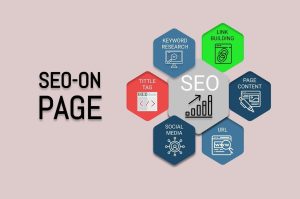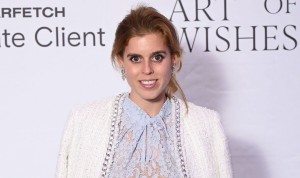In recent years, Coca-Cola has embraced the power of generative AI technology in its advertising and marketing efforts, revolutionizing the way it engages with consumers. By leveraging cutting-edge AI advancements from companies like OpenAI and Stable Diffusion, Coca-Cola has successfully launched several experiential marketing campaigns that blend technology with creativity. These campaigns have not only demonstrated the transformative impact of AI on marketing but have also allowed Coca-Cola to reach and captivate its target audiences in new and engaging ways.
In this article, we will explore six innovative advertising and marketing campaigns that Coca-Cola created in 2023 using generative AI technology. From AI-powered chatbots to user-generated content contests and augmented reality experiences, these initiatives showcase Coca-Cola’s commitment to leveraging AI for brand marketing. Let’s dive into the details.
1. AI Chatbot With Local Search Results and Lead Capture
Coca-Cola’s first foray into generative AI technology was through an AI chatbot that connects users to local restaurants in their city for the “perfect meal” via direct messaging on Instagram. This AI chatbot was promoted through Instagram newsfeed ads, allowing users to seamlessly discover and explore nearby restaurants.
Powered by OpenAI technology, the chatbot provides users with local search results and even enables them to make reservations through OpenTable. By integrating with Bing’s local search capabilities, Coca-Cola ensures that users receive accurate and relevant restaurant recommendations.
To further enhance user engagement, Coca-Cola’s AI chatbot captures leads within the direct messages by pulling email addresses from users’ Facebook profiles. This streamlined lead capture process allows Coca-Cola to establish direct communication channels with potential customers.

2. AI Image Generator Using GPT-4 and DALL·E for Lead Generation
In collaboration with Bain & Company and OpenAI, Coca-Cola introduced the Real Magic platform, an AI image generator powered by GPT-4 and DALL·E. This unique AI technology allows users to create original artwork using assets from Coca-Cola’s archives.
During the holiday season, Coca-Cola leveraged the AI card generator feature of the Real Magic platform to enable users to create AI-generated Christmas cards for their loved ones. To access the AI card generator, users were required to sign up for a free account or log in using their Google, Facebook, Apple, or email credentials.
To promote the holiday AI card generator, Coca-Cola utilized Google Ads in search and ran ad campaigns on Facebook and Instagram. These campaigns introduced social media audiences to the Real Magic app and encouraged them to explore the AI-generated artwork.
3. Contest for User-Generated Content
Coca-Cola invited creators worldwide to participate in the Create Real Magic contest, which aimed to generate original artwork using branded Coca-Cola assets, GPT-4, and DALL·E. Artists from select countries had the opportunity to submit their creations for a chance to be featured on Coca-Cola’s digital billboards in prominent locations such as New York’s Times Square and London’s Piccadilly Circus.
This contest not only inspired fans to showcase their creativity but also allowed Coca-Cola to refine the AI experience before launching the holiday card generator. By leveraging user-generated content, Coca-Cola demonstrated the power of AI in fostering a collaborative relationship between the brand and its consumers.

4. Video Marketing Featuring Reimagined Art
Coca-Cola continued to promote the Real Magic platform through a captivating video campaign called “Masterpiece.” This video showcased reimagined artwork throughout the years, highlighting AI-generated art featuring Coca-Cola branded assets.
To further engage consumers, Coca-Cola made these AI-generated artworks available as collectible digital assets. By leveraging blockchain technology, Coca-Cola ensured the authenticity and uniqueness of these digital collectibles, allowing consumers to own a piece of AI-generated art history.
5. Out-Of-Home Advertising Experience
Coca-Cola’s limited-edition releases concluded with a weeklong out-of-home (OOH) advertising experience called “Destination Y3000” in Las Vegas. This immersive experience aimed to promote Coca-Cola’s new flavor, Y3000, which was co-created by humans and AI.
The advertising experience took place at The Sphere, a prominent venue in Las Vegas. It featured dynamic projections, showcasing futuristic cityscapes and a world imagined by generative AI. The Sphere’s Exosphere provided the perfect canvas for displaying the creative power of AI technology.

6. Augmented Reality Experience with Stable Diffusion
In addition to the OOH advertising experience, Coca-Cola created an augmented reality (AR) experience for Y3000 using Stable Diffusion. This AR experience allowed users to transport any setting they photographed into a futuristic world imagined by generative AI.
The AR experience was available exclusively for smartphone users, who could access it by scanning a QR code provided by Coca-Cola. This innovative use of AR technology enabled users to immerse themselves in a world where AI and reality seamlessly merged.
Conclusion
Coca-Cola’s strategic adoption of generative AI technology has revolutionized its advertising and marketing approaches. By leveraging AI-powered chatbots, user-generated content contests, video marketing, OOH advertising experiences, and augmented reality, Coca-Cola has successfully engaged its audience in novel and dynamic ways.
These innovative campaigns demonstrate Coca-Cola’s commitment to blending cutting-edge technology with creative marketing techniques. By embracing generative AI, Coca-Cola has effectively transformed the way it interacts with consumers, inspiring marketers and advertisers to explore the vast potential of AI in brand marketing.
As technology continues to evolve, Coca-Cola’s pioneering efforts serve as a testament to the power of AI in shaping the future of advertising and marketing.




No comments! Be the first commenter?